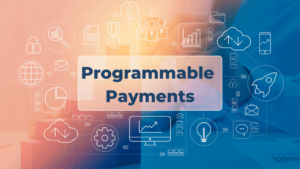In the face of global environmental challenges, businesses are integrating sustainability and recycling incentives into their brand strategies. These tactics not only drive eco-conscious consumer behavior but also foster brand loyalty, ushering in a new era of responsible consumption.
Key Takeaways
- It’s a consumer-driven change. The growing demand for sustainable practices is leading businesses to adapt, focusing on sustainability marketing and engagement.
- The benefits are mutual. While businesses enhance their brand reputation in sustainability, consumers get rewarded for their eco-conscious actions.
- Innovative tech solutions play a role. From reverse vending machines to integrated wallet systems, technology is making recycling more accessible and rewarding.
- It’s about bridging CSR and consumer engagement. Brands are seamlessly combining their CSR goals with consumer incentives, leading to win-win situations.
Incentivizing Sustainable Choices: The Business Perspective
Brands are keenly aware of evolving consumer attitudes toward sustainability. To cater to this eco-conscious consumer engagement, many are introducing sustainability incentives. Companies are capitalizing on these to promote environmental responsibility initiatives and bolster their sustainable brand image. For instance, businesses adopting biodegradable packaging solutions or promoting eco-friendly product incentives often see an uptick in brand loyalty.
Recycling Incentives: A Win-Win for Businesses and Consumers
The growing trend toward recycling incentives manifests itself in various ways. Brands that actively promote recycling can benefit from the cultivation of sustainable practices, creating a win-win situation. Consumers who return used products or packaging earn discounts, loyalty points, or special offers, and sometimes rewards in cash. Such green incentive programs fortify brand CSR (Corporate Social Responsibility) strategies while simultaneously fostering green brand loyalty.
Most of the recycling rewards programs today offer a small reward – a voucher or discount coupon. Research indicates that 88% of consumers favor cash rewards as recycling incentives, even if the amount is low. Cash is proven to be the most effective motivator, as proven by the Deposit Return Schemes, but it also results in increased costs for the scheme operators and creates operational inefficiency.
Deposit Return Schemes
Deposit return schemes are garnering attention as effective recycling behavior incentives. Consumers pay a deposit when purchasing specific beverage containers, which is refunded when they return the containers for recycling. Such systems exhibit a twofold advantage. Firstly, they boost the recycling rates, promoting a circular economy. Secondly, they reinforce eco-friendly consumer choices, as seen in the success of bottle return machines. For instance:
- Finland’s deposit return system, in operation for many years now, encompasses glass and plastic containers, boasting impressive recycling rates of 94% for aluminium cans and 92% for plastic bottles in 2020.
- Norway achieves a remarkable 97% recycling rate, partly thanks to an environmental tax on bottle producers that incentivises high-quality recycling.
- Socially, these systems empower consumers, allowing them to choose to collect their deposit or donate it to charity, while Germany’s approach encourages community engagement. Smart RVMs have increased recycling rates by 51%, offering convenient on-the-go recycling, and the German Pfand system significantly reduces disposable container waste.
- Additionally, studies from the Container Recycling Institute emphasize the economic benefits of deposit systems, creating jobs and highlighting the financial advantages of recycling.
- Major companies like Coca-Cola are now embracing this trend, responding to social pressure and stricter regulations on single-use plastics, while environmental groups advocate for their expansion to various packaging types.
Deposit Return Schemes and Reverse Vending Machines attract more in-store traffic and sales for participating retailers. In fact, statistics indicate that retailers might lose up to 15% of their customers if they don’t provide bottle deposit and return opportunities.
Producers` perspective: High costs and Missed opportunities
The cost of ESG compliance and recycling for producers can be a substantial financial commitment. To meet regulatory requirements and consumer demands, they switch to more eco-friendly materials, invest in sustainable practices, bear the costs of waste recycling systems and invest in marketing campaigns to showcase their efforts.
But very often all these initiatives go unnoticed and don’t result in higher customer engagement or loyalty. Inefficient reward methods, like coupons and vouchers, don’t attract more attention to a brand. Producers spend a lot of money on circular economy initiatives and miss out on the opportunity to build long-lasting relationships with their end-users. They don’t get access to data and insights that would help them understand customer behaviors and recycling patterns because current solutions don’t allow that.
Unpacking the Potential of Digital Recycling Incentives
Recycling incentives play a crucial role in our fight for a cleaner planet, but they need to be beneficial for all parties involved. Consumers admit that they want to make sustainable choices, but they also want to be rewarded for their efforts.
Cash rewards are the most effective motivator, but they also come with a lot of challenges and inefficiencies. Paper coupons and vouchers offer limited impact and lack tangible results for brands.
Digital instant payments on the other hand offer greater efficiency, lower costs, and customer engagement opportunities. OneStep Financial developed a platform that addresses the challenges of current recycling reward schemes with automated rule-based reward distribution embedded into clients’ marketing channels.
Here, the recycling incentives are distributed directly and instantly to end-users via a tailor-made Customer Engagement Portal or a Digital Wallet. Brands can leverage these tools as their marketing channel, to drive direct engagement, loyalty and to generate valuable insights that will support further inclusion of ESG principles into the company’s value chain.
Bridging the gap between sustainability and profitability
The fusion of sustainability and finance is creating a robust framework. Here, both businesses and consumers find mutual benefits.
Digital recycling incentives can be a game-changer for businesses seeking to generate a positive Return on Investment from their ESG efforts. By doing so, they not only attract environmentally-conscious consumers but also open the doors to new customer segments who prioritize sustainability. Moreover, these incentives can enhance the lifetime value of existing clients by fostering a sense of loyalty and incentivizing continued engagement.
In essence, the marriage of sustainability and finance, in this context, facilitates a beneficial ecosystem where all parties involved stand to gain economically and environmentally.






